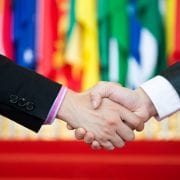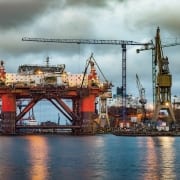Top 10 Tips for Exporting to Asia
Asia is one of the fastest growing markets for Enterprise Ireland clients with companies such as Corvil, Fexco, Cubic Telecom, Dublin Aerospace and Arralis succeeding in areas such as Fintech, ICT and Aerospace. It may be the biggest and most populous continent in the world, with the strongest emerging markets, but its scale can be addressed by choosing the right base to diversify into other markets.
One
Preparation: Possibly the most important tip before entering Asian markets. Being well informed on the different rules and policies of the investment destination is vital. For example, doing business in mainland China can sometimes be complicated and bureaucratic, with vaguely written regulations interpreted differently by different bureaus. Exporters should be aware that setting up a company takes several months and requires a 12-month office lease to be secured at the initial stages. Companies should prepare for the cost involved. Singapore and Hong Kong are comparatively easier. A company can be set up within a few days or weeks. However, these regions have their own obstacles so research and seeking local advice is recommended.
Two
Local Practices: Business practices in Asia are vastly different from Ireland. In most regions, especially China and India, relationships are key. Deals with locals are usually determined by how well you know the counterparty. Many smaller local businesses (eg suppliers) might be uncomfortable dealing with a foreign business and change their prices accordingly. Knowledge of local languages and practices is key. Having trusted local employees certainly smooths things over when dealing with suppliers and clients.
Three
Recruitment and Labour Law: Recruitment of local staff requires care. Online platforms and agencies can help but always check the background of candidates. Be aware that labour law in China is biased towards the worker so ensure an employment contract in Chinese is signed by all staff, with strict internal rules backed up by a staff handbook. Also, ensure Income Tax and Social Insurance are withheld and paid by all employees.
Four
Don’t assume operating to be easy: This is especially true for China, India and Vietnam, with the latter two becoming increasingly popular. Despite the high level of risk that has always been perceived by foreign investors in India, recent policies aimed at improving ease of doing business could represent an attractive change. The recently liberalised FDI caps, the presence of a skilled and low-cost labour force and high English literacy in the country are advantages for foreign investors.
Nevertheless, particular attention must still be paid to the Indian environment. Opening companies in the country can be lengthy and complicated and assistance could be needed. The choice of the location is fundamental due to the numerous regional differences in terms of business licences, overhead costs and consumer behaviours.
Vietnam represents an attractive business environment for foreign investors when compared to other Asian countries. They have a relatively stable government; increasing consumer confidence and domestic consumption; extremely cheap labour force and facilities; and abundant natural resources. However, Vietnam often ranks low in ease of doing business. The complexity of legal processes and the presence of several state-owned enterprises should alert investors to look for professional assistance whenever entering the market.
The country is becoming one of the biggest manufacturing hubs in the world and many investors are still unaware of the great potential of the local consumer market, with one of the fastest growing middle classes in South East Asia.
Five
Corporate responsibility: When doing business in China, make sure you choose a reliable and trustworthy legal representative. They will have full access to the company, cash and capital; and can enter into contracts on behalf of the company.
Six
Banking: Ensure the chosen bank has experience dealing with foreign companies and handles matters such as currency exchange and profit remittance regularly. In Hong Kong, many banks have implemented a ‘know-your-client’ scheme in which it is no longer possible to set up a corporate account remotely or with a proxy. Therefore all directors/shareholders must be present in the bank at time of opening an account.
Seven
Address/Capital/Scope/Name: The four core pieces of registered information for a Chinese company are business name, address, scope and registered capital. Each should be thought out thoroughly prior to investment as changes are time-consuming, costly and would almost certainly interrupt business operations.
Eight
Offshore status: Apply for Offshore Status, if applicable. A company in Hong Kong can be established without substance, that is, with no office or staff, and can be operated remotely. Currently, if all the income is sourced from abroad then a Hong Kong company may not liable for local tax.
Nine
Taxes: Be aware of taxes due. Despite recent reforms, China’s tax system is very convoluted and rates are quite high. Corporate Tax is 25% and VAT rates vary. Hong Kong’s Corporate Tax rate 16.5% and Singapore’s are 8.5% and 17%.
Ten
Due Diligence: No matter what part of the region you are investing in, if a major deal is being made with a local company, or equity is being purchased for a merger, always perform a full corporate health check and due diligence to ensure no liabilities are assumed. Hiring a professional consultant is crucial and can help avoid bad debt or tax liabilities being unknowingly transferred. Any company that refuses an investigation should not be dealt with.






 Are you targeting any other markets currently?
Are you targeting any other markets currently?


